Modern telecommunications in Thailand began in 1875 with the deployment of the first telegraph service. Historically, the development of telecommunication networks in Thailand were in the hands of the public sector. Government organisations were established to provide telegraph, telephone, radio, and television services, and other government agencies, especially the military, still control a large estate of radio and television spectra. Private telecommunication operators initially acquired concession agreements with state enterprises. For mobile phone services, all the concessions have been amended by successive government to last 25 years have gradually ended in 2015. For other services, the concession terms and conditions vary, ranging from one to fifteen years. Nearly all of the concessions are build-operate-transfer (BTO) contracts. The private investor has to build all the required facilities and transfer them to the state before they can operate or offer services to public.
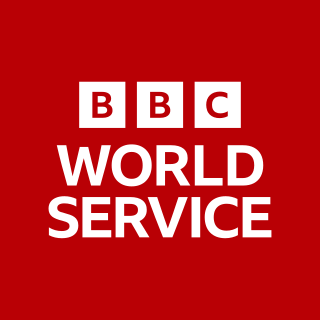
The BBC World Service is an international broadcaster owned and operated by the BBC, with funding from the British Government through the Foreign Secretary's office. It is the world's largest external broadcaster in terms of reception area, language selection and audience reach. It broadcasts radio news, speech and discussions in more than 40 languages to many parts of the world on analogue and digital shortwave platforms, internet streaming, podcasting, satellite, DAB, FM and MW relays. In 2015, the World Service reached an average of 210 million people a week. In November 2016, the BBC announced that it would start broadcasting in additional languages including Amharic and Igbo, in its biggest expansion since the 1940s.
International broadcasting, in a limited extent, began during World War I, when German and British stations broadcast press communiqués using Morse code. With the severing of Germany's undersea cables, the wireless telegraph station in Nauen was the country's sole means of long-distance communication.
Television Broadcasts Limited (TVB) is a television broadcasting company based in Hong Kong SAR. The Company operates five free-to-air terrestrial television channels in Hong Kong, with TVB Jade as its main Cantonese language service, and TVB Pearl as its main English service. TVB is headquartered at TVB City at the Tseung Kwan O Industrial Estate.

All India Radio (AIR), officially known since 1957 as Akashvani, is the national public radio broadcaster of India and is a division of Prasar Bharati. It was established in 1936.

China National Radio is the national radio network of China, headquartered in Beijing.

Radio Televisyen Malaysia (RTM), also known as the Department of Broadcasting, Malaysia is the national public broadcaster of Malaysia. Established on 1 April 1946 as Radio Malaya, it is the first and the oldest broadcaster in the country. After Malaysia was formed on 16 September 1963, Radio Malaya was renamed Radio Malaysia. On 28 December the same year, television service in Malaysia began with the establishment of Televisyen Malaysia. In 1969, Radio Malaysia and Televisyen Malaysia merged to form the present day broadcast department. Radio Televisyen Malaysia monopolised the free-to-air television until 1984 and radio until 1988, when private television and radio stations such as TV3 and Best FM begin to exist. Currently, it operates 6 television channels and 34 radio stations nationwide.
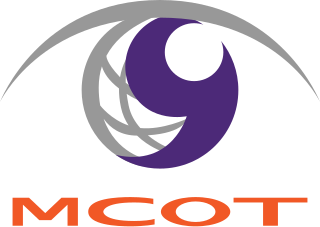
MCOT Public Company Limited, formerly known as the Mass Communication Organization of Thailand, is a Thai state-owned public broadcaster. It owns and operates a number of radio and television stations in Thailand. It is based in Bangkok. At present, MCOT runs seven national, one international, 52 provincial, one district radio station, two television channels, and 2 satellite television channels.(until 2017) Their motto is "Always Serving the Public". On their website MCOT uses the slogan "Digitally beyond".
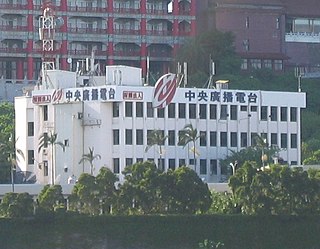
Radio Taiwan International is the English name and call sign of the Central Broadcasting System (CBS), national broadcaster and international radio service of the Republic of China, commonly known as Taiwan. It is a government-owned station that broadcasts in 14 languages around the world via the internet, shortwave and podcasts. It also has Facebook fan pages in five additional languages. The station’s hosts and programs have won many national and global broadcasting awards.
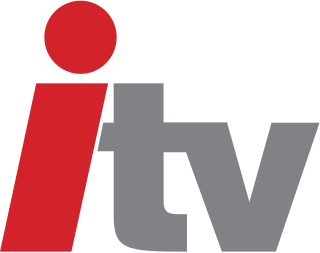
ITV was a television station in Thailand that was owned by iTV Public Company Limited, a unit of Shin Corporation. As Thailand's first UHF channel, the station was started in 1995 when the company was granted a 30-year concession by the Office of the Permanent Secretary to the Prime Minister's Office to operate a free-to-air television station in the Ultra High Frequency (UHF) spectrum at 510-790 MHz. After a lengthy dispute over unpaid concession fees to the Prime Minister's Office, the government's Public Relations Department took over the station in 2007. Its name was changed to Thailand Independent Television (TITV). Following a previously unannounced order of Thailand's Public Relations Department delivered the same day, the station closed on January 15, 2008. In accordance with the Public Broadcasting Service Act B.E.2551(2008), the channel's frequency was assigned to the Thai Public Broadcasting Service.

The Thai Public Broadcasting Service, or TPBS, is a public broadcasting service in Thailand. It was established by the Thai Public Broadcasting Service Act, BE 2551 (2008), which came into force on 15 January 2008. Under this act, TPBS holds the status of state agency with legal personality, but is not a government agency or state enterprise.
In Thailand, television broadcasting started on 24 June, 1955. Color telecasts were started in 1967, and full-time color transmissions were launched in 1975. As of November 2020, there are currently 21 digital (DVB-T2) TV channels in Thailand.
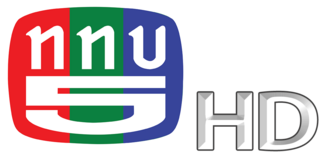
Channel 5 is a Thai free-to-air television network owned by the Royal Thai Army, launched on 25 January 1958.

Channel 3 or Channel 3 HD is a Thai free-to-air television network that was launched on 26 March 1970 as Thailand's first commercial television station. Channel 3 is operated by BEC Multimedia Company Limited (“BECM”), a subsidiary of publicly traded company BEC World Public Company Limited. The network is headquartered in the Maleenont Towers of Bangkok.
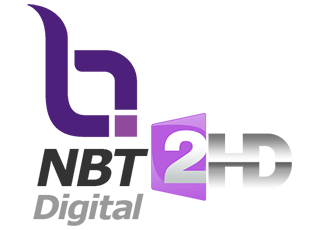
National Broadcasting Services of Thailand (NBT) is the broadcasting arm of the Government Public Relations Department (PRD), a division of the Thai Government. It operates comprehensive media services comprising radio, television networks, online services and social media.

Radio Thailand is the public radio station in Thailand, owned by the National Broadcasting Services of Thailand. The station has six FM national radio, 65 FM provincial radio, three AM national radio, 46 AM provincial radio and World Service. Some Radio Thailand provincial radio stations can be received in neighbor countries of Thailand like Malaysia, Laos, Cambodia and Myanmar.












